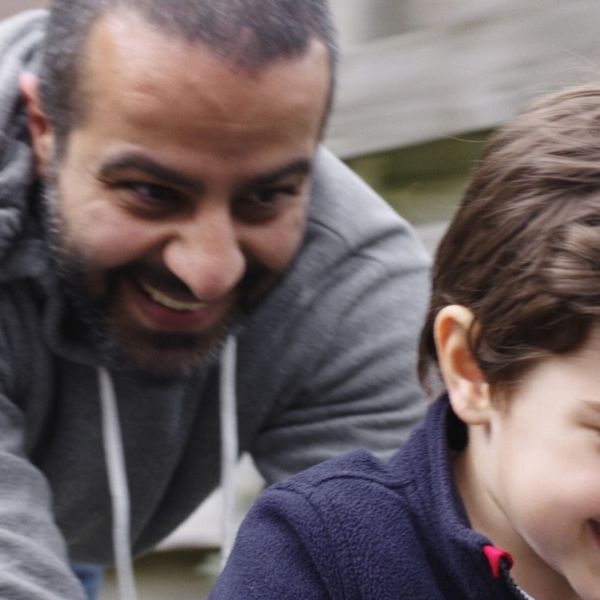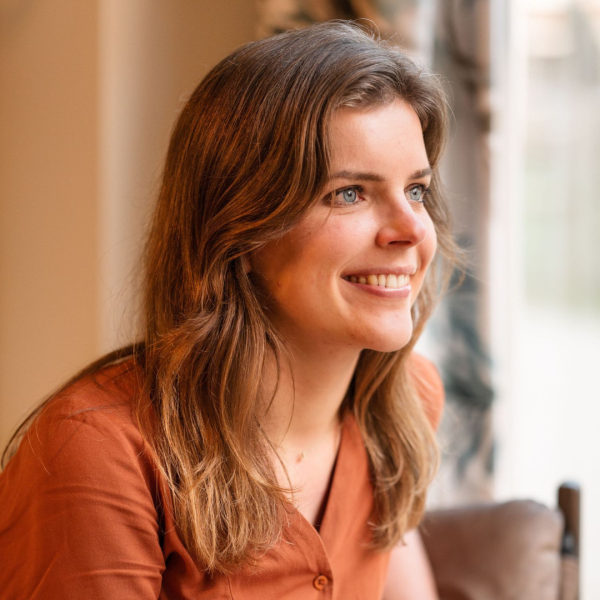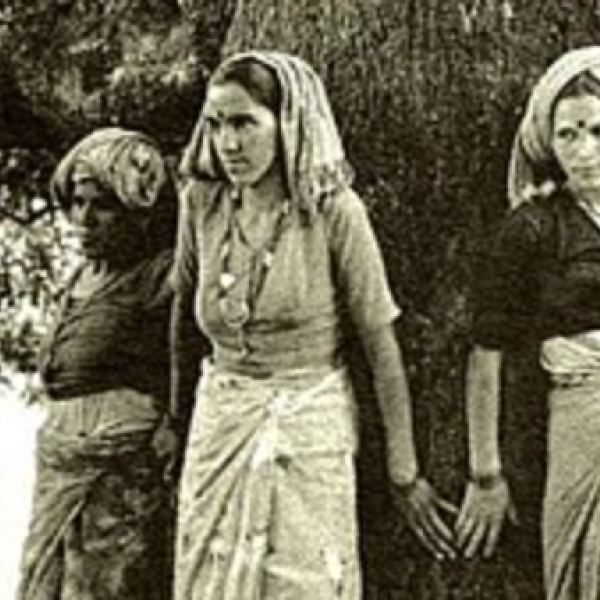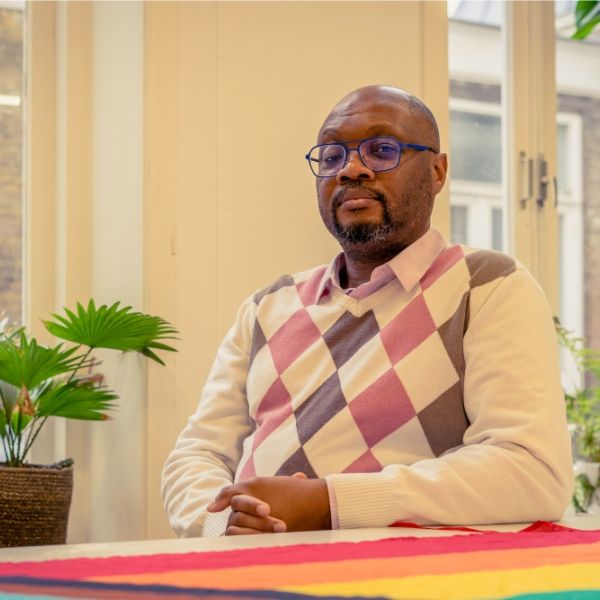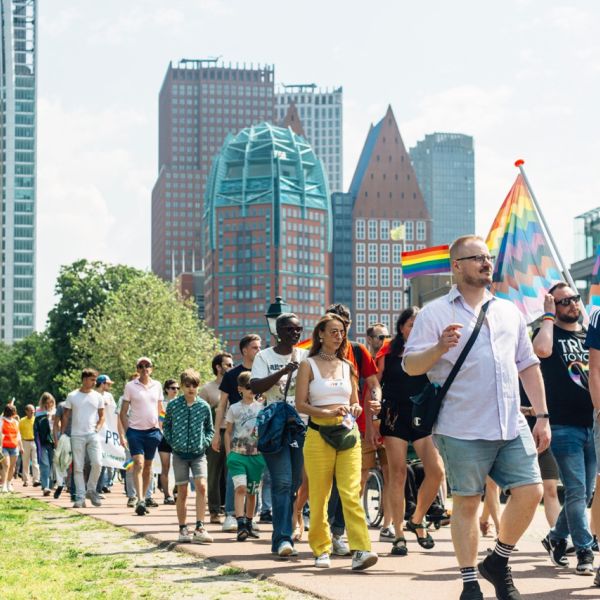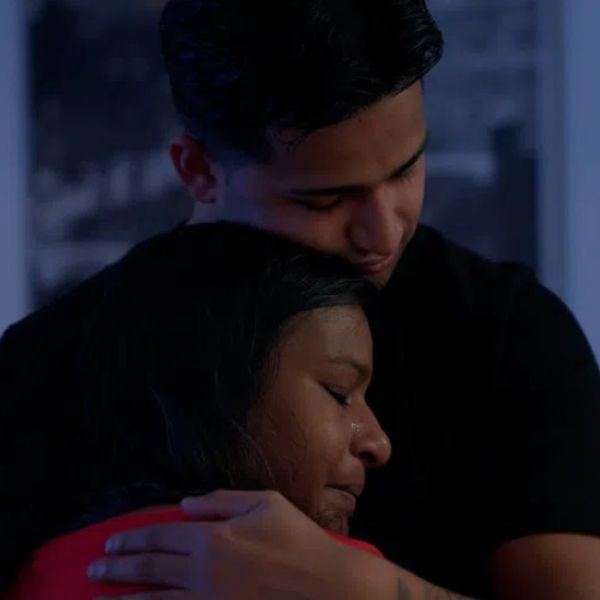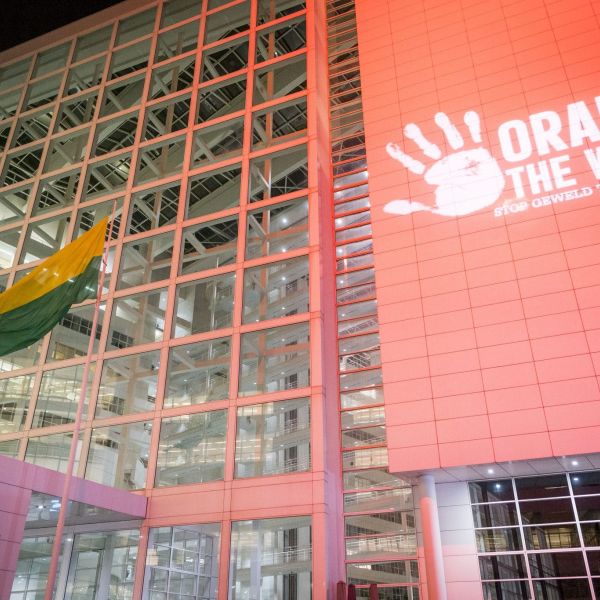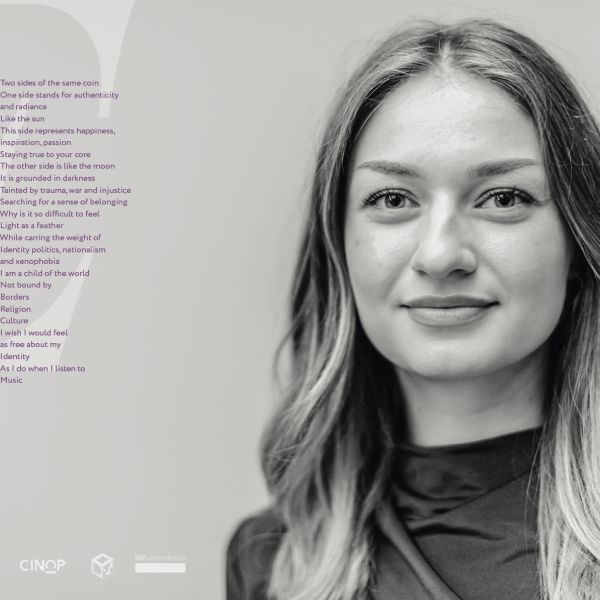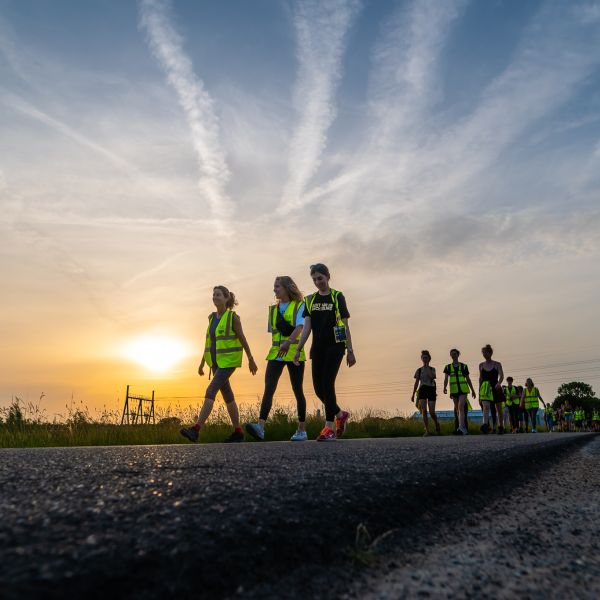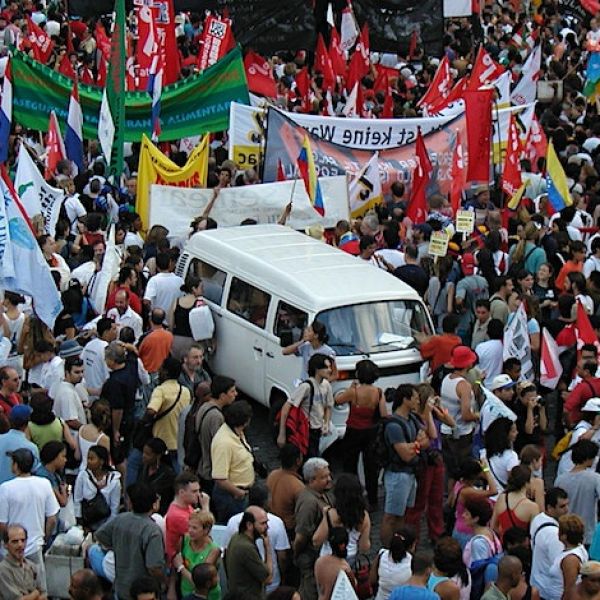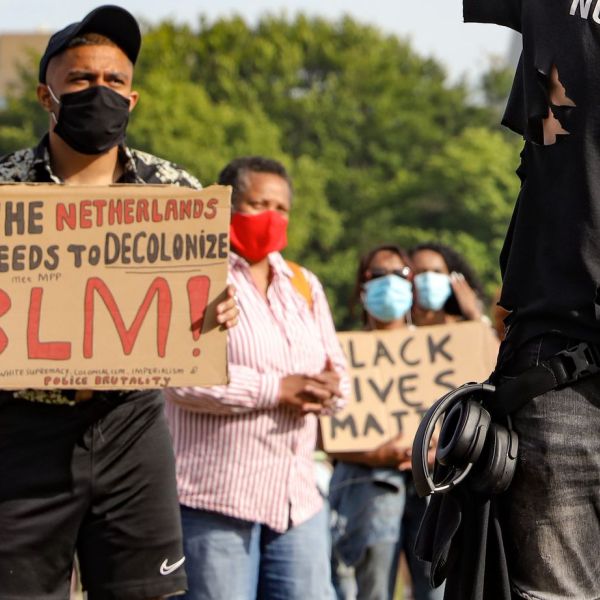Betsy Schouten from Wereldhuis: "Not being able to feed your children can be just as threatening as bombs falling from the sky."
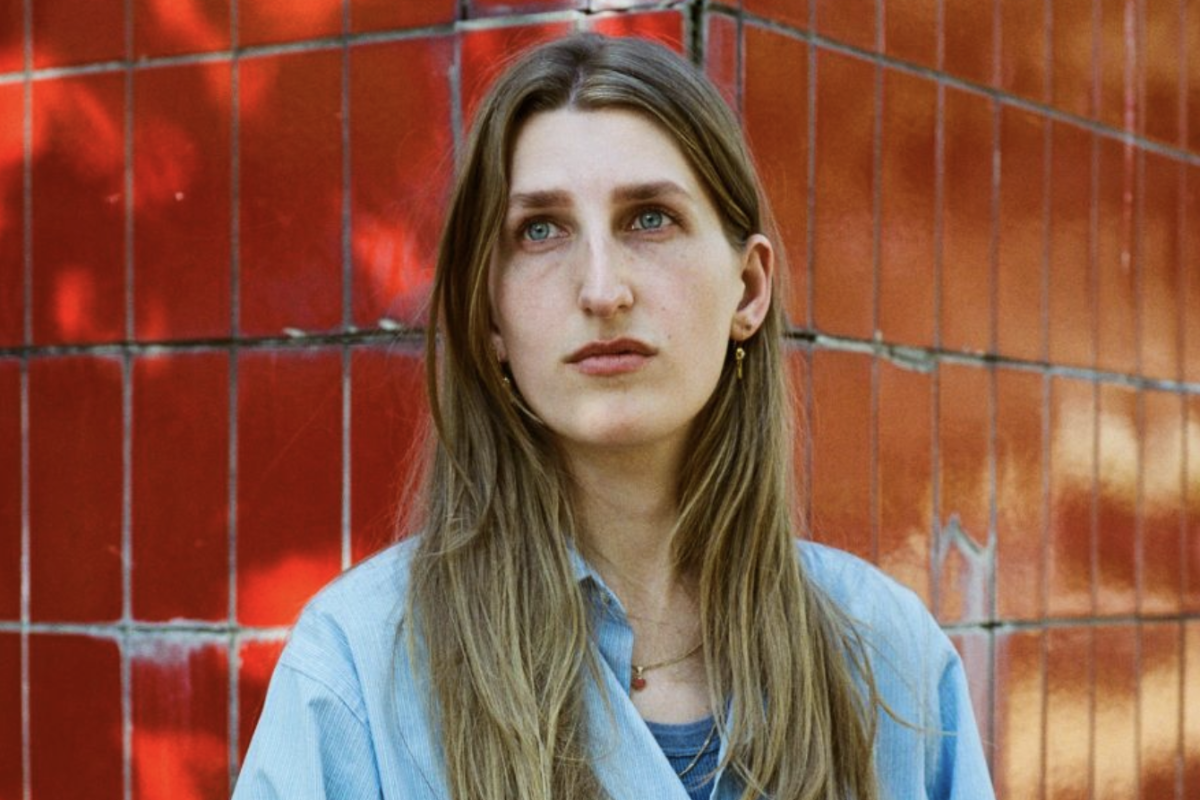
Tuesday, June 20th is World Refugee Day. On this day, we reflect on the resilience of millions of refugees worldwide. We honor the courage, resilience, and determination of all refugees that are forced to flee their countries due to conflicts, persecution, or human rights violations.
To mark this annual day, we spoke with Betsy Schouten, former consultant at the Wereldhuis, and also involved in emergency accommodation for undocumented individuals in The Hague. Both projects are part of STEK, the Foundation for City and Church.
Betsy's eyes light up as she begins to talk about her work and the satisfaction it brings, but she also shares her frustration with the systems she and her colleagues encounter on a daily basis. "It frustrates me that so many talented people come to the Netherlands only to be sidelined."
Photography and text by Loretta Monique
You work for two different initiatives: ‘het Wereldhuis’ and the emergency shelter. What is the difference between these two places?
"The emergency shelter in The Hague consists of three small locations for people without residence permits. We provide temporary shelter for people in emergency situations; it's a safe place where someone can catch their breath, so to speak. At the same time, efforts are made to explore potential (legal) options, in the hope that a residence permit can eventually be granted. In some cases, people also stay with us temporarily without the prospect of a residence permit, for example, because they are returning to their country of origin or because they are seriously ill but are not entitled to regular shelter due to their immigration status.
"You have to help where there is no helper. And for this target group, there clearly is no helper."
The Wereldhuis is a drop-in centre for undocumented individuals, so it essentially caters to the same target group as the emergency shelter. We provide social, legal, and medical support to people, and we hold consultations twice per week, where we inform people about the limited rights they have. For instance, undocumented children have the right to education (including compulsory education), and all undocumented individuals have the right to medically-necessary care, or the right to fair treatment and timely payment, even if they are engaged in informal work. In some cases, people can even initiate legal proceedings against their employers if they are not treated fairly. In addition to the limited rights that undocumented individuals have, they unfortunately face numerous restrictions; they cannot open a bank account, sign employment or rental contracts, freely cross borders, or obtain insurance. This makes them highly vulnerable, which is why it is crucial to inform them about the things they can do.
Both of these initiatives are part of STEK: the Foundation for City and Church. It's the implementing organisation of the Protestant Diocese in The Hague. From a care perspective, we aim to 'help where there is no helper.' And for this target group, there clearly is no helper."
Stek, stichting voor stad en kerk, wil mensen stimuleren om zich met elkaar te verbinden en elkaar te beschermen, elkaar te versterken en te bezielen. Met dit doel heeft Stek uiteenlopende projecten in Den Haag en directe omgeving. Het zijn projecten om mensen te ondersteunen en met elkaar in contact te brengen. Stek werkt in Den Haag met en voor mensen in de marge van de samenleving: mensen die leven onder de armoedegrens, eenzame ouderen, kinderen in achterstandsbuurten, asielzoekers en ongedocumenteerden.
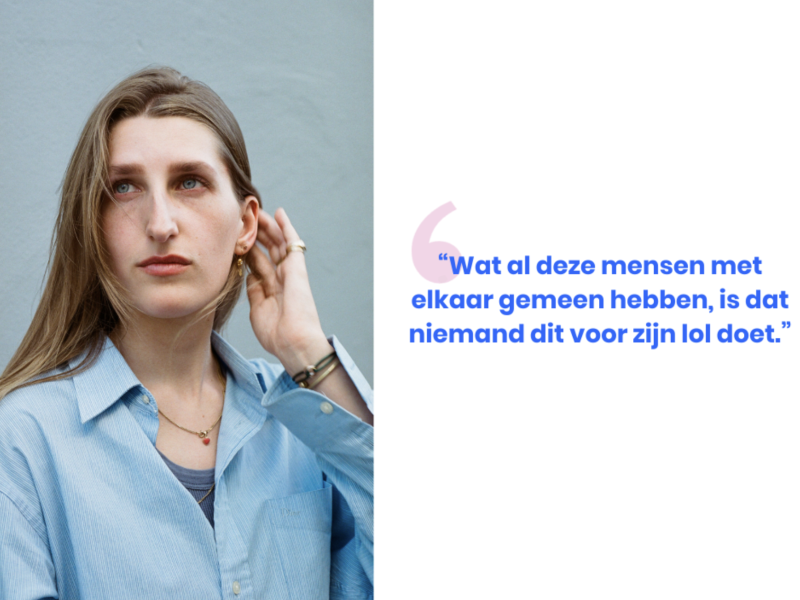
Take us through the process. If someone comes to your emergency shelter, how does it work exactly?
"We are usually approached by partner organisations such as the Wereldhuis, SHOP, or Vluchtelingenwerk (Refugee Assistance Network), but it can also be a municipal office where someone without documents arrives. We have a solid collaboration with Vluchtelingenwerk in The Hague, and they always handle the legal intake. Vluchtelingenwerk assesses the individual's asylum procedure and the likelihood of obtaining a residence permit. Based on that, we engage in a conversation with the person. If we believe that this person is also a good fit for our shelter, we may decide to provide temporary accommodation.
It is important to note that individuals without a residence permit are generally not entitled to government or municipal shelter. As we are a small shelter and want to ensure a turnover to continue providing space for vulnerable individuals, there must be a prospect of a residence permit or an alternative sustainable outcome; otherwise, we cannot accommodate them. If we place a mother with three children in the shelter who has no prospect of a permit or another sustainable outcome, we could end up accommodating that person for up to twenty years. In that case, the mother may never become self-sufficient.
"People without a residence permit are not entitled to shelter in the Netherlands."
Therefore, we have criteria that we must adhere to, but if there's a match, someone can be temporarily placed in the shelter. Initially, it's always for about five months, and we can extend it a bit if the procedure takes longer. We're seeing more delays in the procedure because the IND (Immigration and Naturalisation Service) is falling behind on processing times. It's no longer feasible nowadays to complete a procedure within six months.
When someone stays in our emergency shelter, there are always "obligations" attached to it. People who come to us come from vulnerable situations, but alongside providing rest and a safe place to stabilise, we strongly believe in activation. Our vision is that no one benefits from lying in bed all day and feeling down. Everyone who comes to our shelter is paired with a buddy. With that buddy, people can engage in social activities, but also learn the language, for example. During the intake process, we assess the person's talents or what they would like to learn. It could be sewing classes, practicing a sport, cycling lessons, or language learning. Then, we explore what is possible within our network.
You mention refugees, undocumented individuals, and those without papers. Why and how is this distinction made?
"Someone without papers or an 'undocumented' individual is someone who does not have valid residence documents, but they may have arrived here as a refugee. We see people who have gone through the (asylum) procedure multiple times without being believed by the Immigration and Naturalisation Service (IND). At some point, these people are deemed unsuccessful in their claims. At that moment, it is highly unlikely for them to obtain a residence permit, and they become undocumented. However, there are also undocumented individuals who never really had a chance to apply for a permit because they were not aware of the proper routes or did not have 'asylum grounds'. We encounter a highly diverse group, and recently, at my workplace in Amsterdam, I have seen a "new" group from Brazil, Colombia, and Venezuela due to increasing unrest there. This group can indeed include refugees. The group of undocumented individuals also consists of those who come to the Netherlands for economic reasons. There are Filipinos who clearly say, 'I will work in Europe for a few years, send money to my family, and when I have saved enough money, I will return.' But what they all have in common, and I always find it the most important message, is that no one does this for fun.
The stories of those who came here for economic reasons are also extremely heartbreaking. If you cannot feed your children, if you worry every day about how to pay the bills, it can be just as threatening as bombs falling from the sky.
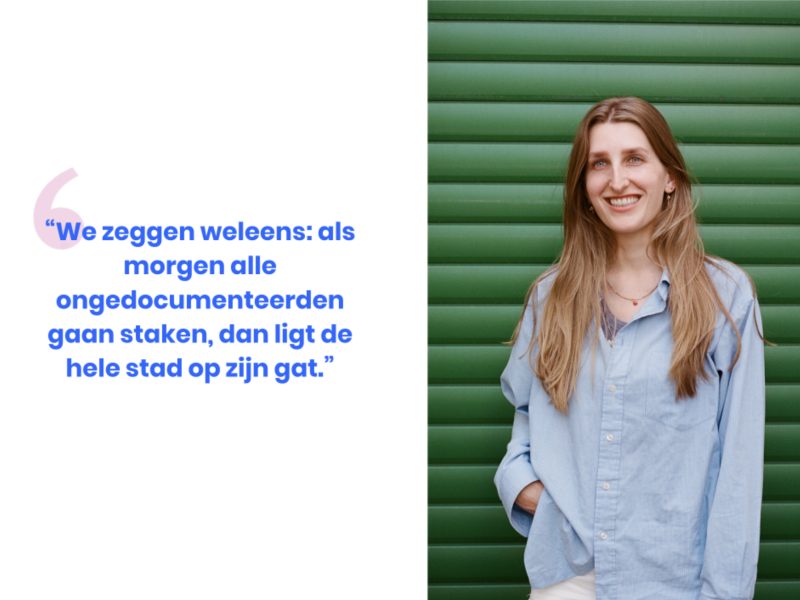
This group of people is often quickly dismissed in a certain way. In my work, I also meet many Moroccan and Tunisian people, and sometimes I hear the remark, 'What are they doing here? They can easily go back to their own country; it's safe there!' But Morocco or Tunisia is not safe for a man who is attracted to men or for a woman fleeing from family problems or honour violence. Assuming that these countries are inherently safe because there is no war is a false assumption. Aside from that, I believe that everyone should have the opportunity to pursue their dreams, and if that is not possible in the place where you were born, it can also feel very threatening and deprive you of the chance to have a dignified existence.
What is a significant challenge you are currently facing?
"Apart from the general fact that there are hardly any facilities for undocumented individuals, we are now facing a very concrete problem within our shelter. We are seeing many mothers who are in a so-called 'Chavez' procedure. This is a procedure that a mother can initiate when she has a child with a Dutch partner in the Netherlands. In such cases, it is in the best interest of the child to stay in the Netherlands, as separating them from one of the parents would be detrimental. Based on this, a procedure can be started where the mother receives a residence permit and can stay in the Netherlands until the child's 18th birthday. Unfortunately, after that, the child is seen as an adult, and it may happen that the mother still has to return to her country of origin.
We now frequently encounter these mothers, and the problem we are facing is that these mothers cannot find housing in the current housing market. They do not have priority in their situation, and as a result, they become 'stuck' in our shelter.
"When you cannot feed your children, it can be just as threatening as bombs falling from the sky."
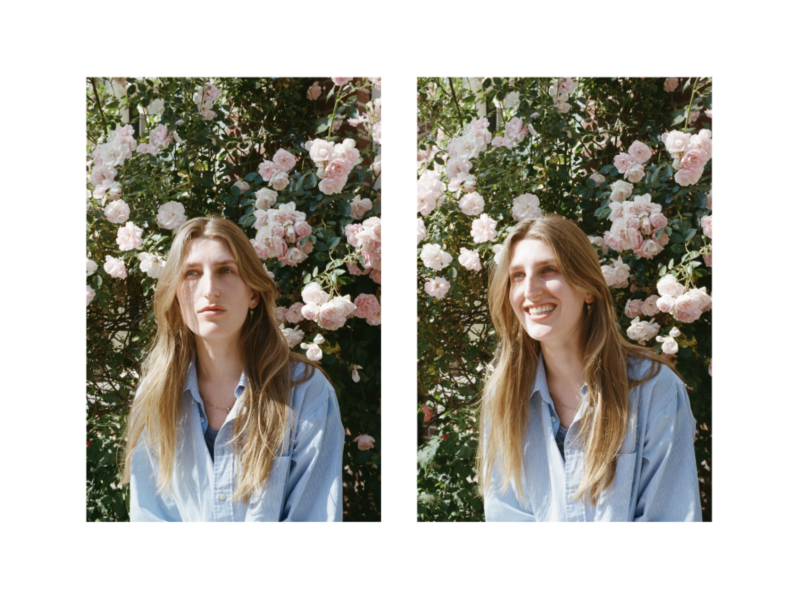
As a result, we experience a very complex flow and see that in other cities, too, the accommodation facilities are getting congested with mothers who have permits but cannot move out to their own homes because, like all Dutch citizens, they end up on a massive waiting list. This means we have no space for undocumented people, and since there is officially no accommodation for undocumented individuals, it is quite a problem.
As a result, there may be a day when I receive a call that a mother without papers and her children are on the streets, and I have no available room. We simply have too few places, also because the state unfortunately does not provide accommodation. That is a significant challenge for us and, I believe, for many other initiatives dealing with undocumented individuals.
Within the group of refugees, asylum seekers, and status holders, we see similar problems. There is currently a shortage of places in asylum-seeker reception centers (AZCs), as well as a shortage of houses, which prevents status holders from moving on from these overcrowded AZCs. This is a direct consequence of policy choices. The government has decided to close down reception facilities and cut funding to the Central Agency for the Reception of Asylum Seekers (COA) and the Immigration and Naturalisation Service (IND), resulting in a significant gap. That's why it always pains me when it is claimed that asylum seekers who receive a permit put enormous pressure on the housing market.
The percentage of social rental homes reserved for people with status is not negligible. The fact is that they do occupy housing, but that percentage is not so large that one could say, "These people are taking away all our homes." You don't wait on a housing list for 15 years solely because a group of status holders is assigned a home. It's a general housing shortage."
"It frustrates me that so many talented people come to the Netherlands and are then left idle."
According to you, what could bring about a positive change?
"It frustrates me that so many talented people come to the Netherlands and are then left idle. Refugees and undocumented individuals are now portrayed as a problem, 'a burden on society,' a major expense, people who only rely on handouts. Yet, the first question people ask me is how they can learn the language and find work. They want to contribute and be self-sufficient. In general, people feel ashamed to ask for help and to receive money. A good example is a 29-year-old woman we had in our shelter. She worked as a nurse in her home country and wanted to work during the COVID-19 crisis. The Netherlands was in lockdown, and there was a massive shortage of healthcare workers in hospitals. Instead of creating an opportunity for her to work, she had to stay at home. She couldn't even volunteer because even volunteer work for undocumented individuals in the Netherlands is legally and insurance-wise very complex.
And she is not the only one; she is just one example among the hundreds of people I have spoken to with talents and passions. They often don't consider themselves too good for certain tasks. I see people who are physically strong and want to work in construction, build streets, do work that many Dutch people shy away from. Then I think: be creative and make use of what these people have to offer because the Netherlands is aging, and we need people."
Does that mean that people end up working unnoticed?
"Everyone who needs to survive finds ways to work. The majority of undocumented individuals are self-reliant. They work in the hospitality industry, cleaning, as caregivers. We sometimes say: if all undocumented individuals were to go on strike tomorrow, the whole city would come to a standstill. You wouldn't be able to dine at your favorite restaurant, your hotel room wouldn't be cleaned, the homes of your friends, parents, uncles, and aunts wouldn't be cleaned, and dishes wouldn't be washed in restaurants. Literally, everything would come to a halt. Even your packages might not be delivered because people secretly do that using someone else's ID."
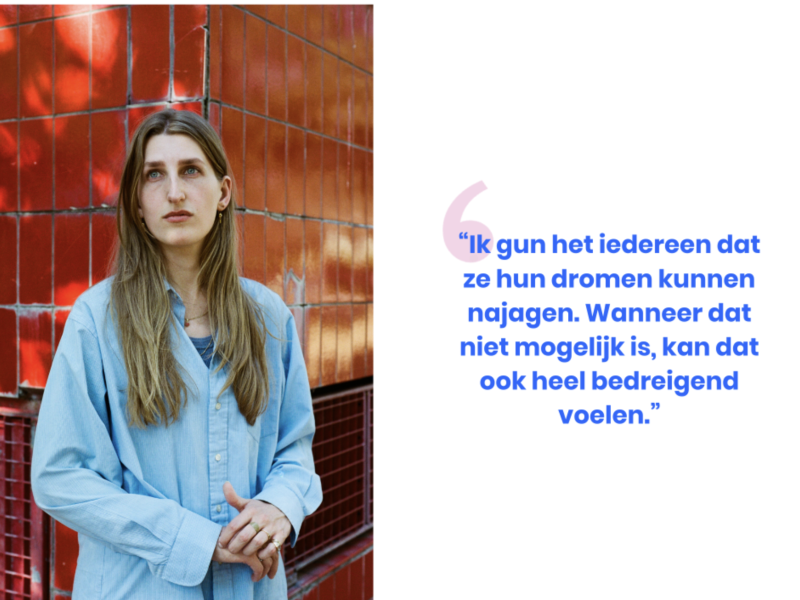
What can people do to contribute?
"When faced with major global issues, people can often feel paralyzed. The thought is 'it's so vast and miserable, what can I possibly do?' But you can always do something. I find the local focus of STEK so great, and it's also the reason why I wanted to work there. If you want to see quick results or do something tangible, I recommend looking into local initiatives. Last year, we provided shelter for 20 men in the Bethel Chapel in The Hague. There was no space for them in the overcrowded asylum center in Ter Apel, so they had to sleep outside in harsh conditions. In such a case, you can do something very concrete. You can volunteer for an afternoon, serve coffee and tea, or come and cook for an evening. That way, you have already made a contribution. With these small actions, you can actually make a big difference.
"We sometimes say: if all undocumented individuals were to go on strike tomorrow, the whole city would come to a standstill."
I strongly believe in sending someone home with a smile, changing someone's evening. I almost believe in that more than sending 7 million euros to a specific country. Don't get me wrong, I'm not saying that a smile changes someone's life, but it can sometimes make a big difference. At STEK and the World House, we can actually change someone's life on a small scale because we invest in one person and fight for that one residence permit.
How important is it for people to continue doing this type of volunteer work?
"It's very important. This is something we need more of in our society. I see firsthand how important it is to keep looking out for each other and not just stay in your own bubble. People in the asylum centers now hardly get a chance to interact with society, partly due to the locations of the centers in the Netherlands. It is crucial for refugees to also meet Dutch people so that they can find their place here and develop themselves. I am convinced that if more people take a step towards them, they will gain so much in return."
Last winter, the Bethel Chapel in The Hague provided shelter for a group of male refugees for six weeks, who had to sleep on the ground in Ter Apel because there was no space for them. After six weeks, the group of men returned to Ter Apel. This dossier describes the personal experiences of the refugees, from the moment they arrived in the Netherlands.
"That was a difficult decision that we made with a heavy heart because what was the right thing to do? We were almost certain that their living conditions would be worse in terms of shelter."
Read the dossier here.

